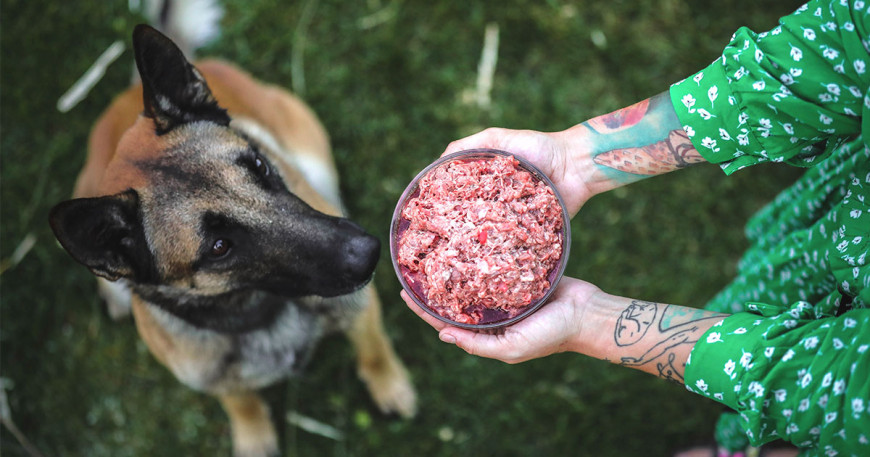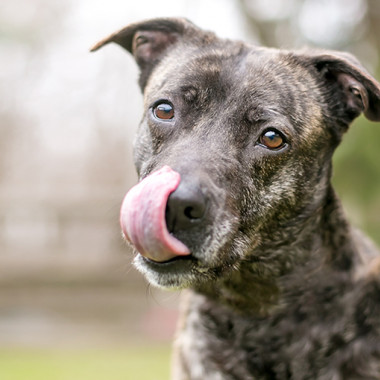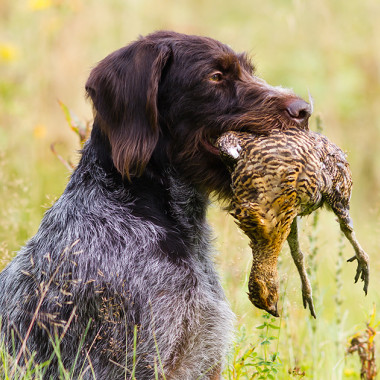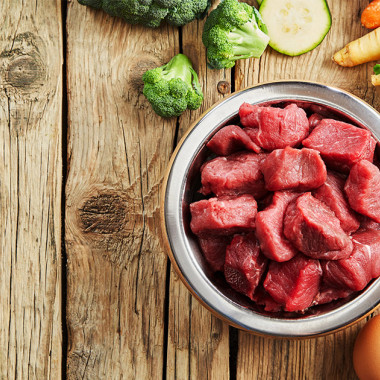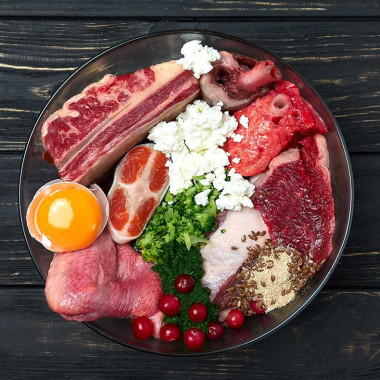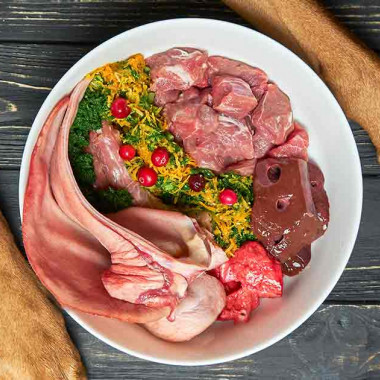The size and digestion of the digestive tract depend on the type of diet. While dogs are classified as carnivores, they still need a plant component in their diet. Their digestive tract isn't as short as in larger carnivores. Digestion varies in each part, and problems can arise in different areas. Proper dietary adjustments to support treatment and alleviate discomfort in case of disease require accurate diagnosis of the affected part of the digestive system. The diet must be adequately modified concerning the content, source, and quality of proteins, carbohydrates, fat concentration, type of fats, and fiber. Emphasis is also placed on the digestibility of nutrients in the food.
Digestive system diseases can be viewed from the perspective of duration, meaning the problem may be acute or chronic. There are many gastrointestinal diseases, and their causes can be parasites, viruses, bacteria, autoimmune diseases, or other internal issues. The most common digestive tract diseases include problems with the pancreas, liver, stomach, and intestines. Depending on the specific issue, an appropriate diet is adjusted.
Pancreas
Pancreatic diseases usually involve pancreatitis or pancreatic insufficiency, also known as EPI (exocrine pancreatic insufficiency). The key is to determine the specific problem, as this dictates the dietary adjustments. It can be acute or chronic. The causes of inflammation vary, with diet playing a central role. Inflammation can be caused by inappropriate food such as heavily spiced human food, high-fat meals, spoiled food, or a sudden change in the diet or commercial food ingredients. Even if the problem doesn't arise immediately, obesity and high blood pressure also contribute to the inflammation. Pancreatitis results in the malfunction of pancreatic enzyme secretion. In acute inflammation, early diagnosis and immediate fasting are essential. Food intake could worsen the issue, turning acute inflammation into a chronic condition. After recovery, a strict low-fat, low-fiber diet is required.
Chronic issues occur after overcoming acute inflammation or due to insufficient pancreatic development, other inflammations, or tumor-related conditions. Such problems result in insufficient production of digestive enzymes, leading to exocrine pancreatic insufficiency. A lack of enzymes hinders proper digestion, and the dog may lose weight without losing appetite, have diarrhea, or produce large stools containing undigested food. Fat breakdown is particularly impaired, requiring the addition of enzymes that the body can no longer produce. These must be pancreatic enzymes, with the dosage based on the severity of pancreatic damage. Enzymes can be provided by feeding raw beef or pork pancreas at a rate of approximately 10g per kg of body weight per meal. Emphasis is placed on easily digestible nutrients, lean proteins, and simple, digestible carbohydrates such as boiled potatoes and rice. Feeding smaller portions more frequently helps ease digestion. Pancreatic insufficiency also leads to vitamin B12 deficiency, and in severe cases, B12 must be administered via injections. If the gut environment changes, harmful bacteria and parasites may proliferate, requiring antibiotic treatment. To restore gut flora, probiotics like yogurt, kefir, and acidophilus milk are beneficial. The proportion of the diet remains the same, with 40-50% meat, 20-30% meaty bones, and 30-40% side dishes, including 15-20% vegetables.
Liver
The causes and symptoms of liver problems vary, and so does the diet plan, which aims to relieve the liver from waste products in the diet. Waste, such as ammonia, is produced during protein metabolism. The liver converts ammonia into urea, which is not toxic. By providing high-quality, easily digestible proteins in moderate amounts, we avoid overburdening the body with waste products, thereby protecting both the liver and kidneys. The liver plays a crucial role in detoxifying harmful substances, metabolizing carbohydrates, processing fats, and producing blood-clotting substances. When the liver fails, metabolic disorders, blood clotting issues, abdominal swelling, and even kidney failure or brain function disorders due to accumulated toxins can occur. Fortunately, the liver has a high capacity for regeneration. With proper diet and treatment, the liver can fully regenerate, so it’s essential to adhere to a strict liver diet. Since detoxification is impaired, protein and fat intake must be reduced. While fat can be significantly restricted, protein is crucial for body function, so its intake is only moderately reduced. First, fatty meats like duck, game, pork, fatty fish, and organs (heart, spleen, liver) should be eliminated. If oils are added to the diet, animal fats should be avoided. Vegetables like carrots, celery, broccoli, asparagus, Chinese cabbage, and tomatoes are beneficial, along with fruits. Dairy products must be low-fat. Supplements like chlorella, pangamic acid, or milk thistle oil are appropriate. The adjusted diet should consist of 70-80% meat, 30% meaty bones, and 20-30% side dishes. Detox supplements and vitamins E, B, and C can also support the body. If the liver is not permanently damaged, the diet can eventually be phased out. However, if permanent damage is present, the diet must be maintained for life.
Stomach and Intestines
The causes of stomach issues range from minor feeding mistakes to complex infections. Fasting followed by a suitable diet is the first aid. Accurate diagnosis is essential, so it is advisable to visit a veterinarian to rule out pathogens. Without proper diagnosis and treatment, diet alone will not help.
A common and severe condition today is stomach torsion, a life-threatening condition with a rapid onset. Dogs that experience this condition are predisposed to future torsions, so it is recommended to divide their daily food into at least three meals. The food should be easy to digest and rich in nutrients.
Digestive problems are common and can have various origins. Symptoms should never be underestimated. Fasting for 12 to 48 hours is recommended as a first step. If the issue does not resolve, a visit to the veterinarian should not be delayed. After diagnosis and treatment, diet can support recovery, helping the dog return to a healthy state. Digestion can also be supported with dietary supplements aimed at improving digestion and preventing potential issues.
